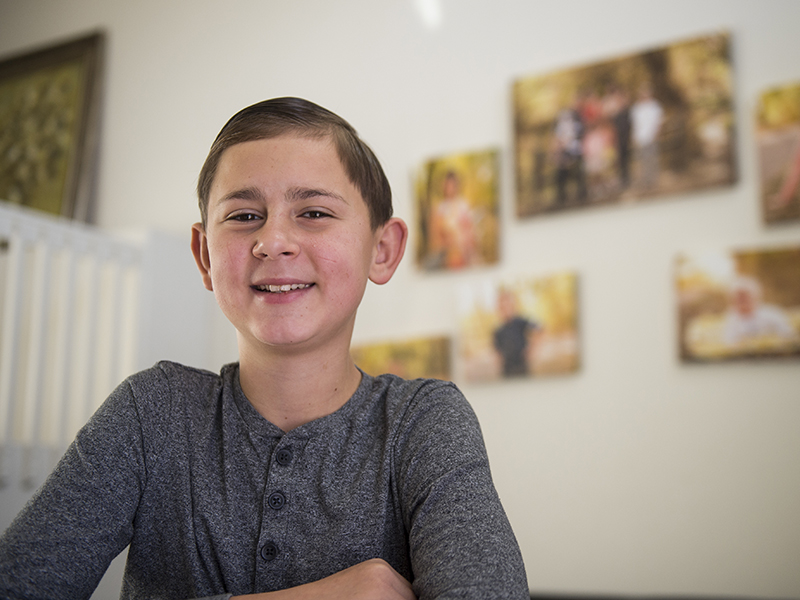- Doctors & Departments
-
Conditions & Advice
- Overview
- Conditions and Symptoms
- Symptom Checker
- Parent Resources
- The Connection Journey
- Calm A Crying Baby
- Sports Articles
- Dosage Tables
- Baby Guide
-
Your Visit
- Overview
- Prepare for Your Visit
- Your Overnight Stay
- Send a Cheer Card
- Family and Patient Resources
- Patient Cost Estimate
- Insurance and Financial Resources
- Online Bill Pay
- Medical Records
- Policies and Procedures
- We Ask Because We Care
Click to find the locations nearest youFind locations by region
See all locations -
Community
- Overview
- Addressing the Youth Mental Health Crisis
- Calendar of Events
- Child Health Advocacy
- Community Health
- Community Partners
- Corporate Relations
- Global Health
- Patient Advocacy
- Patient Stories
- Pediatric Affiliations
- Support Children’s Colorado
- Specialty Outreach Clinics
Your Support Matters
Upcoming Events
The Rosenberry Annual Conference: Pediatric Anxiety - Exploring Innovative Evidence Based Treatments (Hybrid)
Friday, May 3, 2024This conference will review innovative and evidence-based treatment for...
-
Research & Innovation
- Overview
- Pediatric Clinical Trials
- Q: Pediatric Health Advances
- Discoveries and Milestones
- Training and Internships
- Academic Affiliation
- Investigator Resources
- Funding Opportunities
- Center For Innovation
- Support Our Research
- Research Areas

It starts with a Q:
For the latest cutting-edge research, innovative collaborations and remarkable discoveries in child health, read stories from across all our areas of study in Q: Advances and Answers in Pediatric Health.


Alex: How He Got a Kidney and Liver Transplant Simultaneously

Alex Pidkalyuk lifts up his shirt to show his thick scars: one across the top of his belly, one down the side, the result of a simultaneous liver and kidney transplant last year. He calls them battle scars, and he insists he wasn’t afraid.
“He was scared,” says Karina, his older sister. “The day he had surgery, then he was scared.” Alex smiles and shrugs, a baby-faced 14-year-old with hair wet-combed as neat as only his mother could have combed it. “I don’t know. I was on laughing gas the whole time.”
Alex’s diagnosis
Alex was born with Autosomal Recessive Polycystic Kidney Disease (ARPKD), a rare form of kidney disease that manifests only when both parents are carriers, more aggressive than its more common genetically dominant counterpart. Doctors always knew Alex had ARPKD; they expected it. Given that his mother Nataliya and her husband Aleksandr both carry the disease, one in four of their children were likely to inherit its recessive form.
Three of the couple’s eight children were born with it. Two of them, Karina’s older sister and younger brother, passed away soon after birth in Ukraine. Alex, their fourth, was born in the U.S. From birth, it was understood he’d need a kidney transplant someday.
A surprise liver problem
By the time of the transplant, cysts had so wrecked his kidneys that they’d effectively ceased to function. Cysts involve the liver in about half of ARPKD cases, and Alex’s liver — an organ that weighs about three pounds in healthy adults — had swollen to a massive 10 pounds. More than three times its normal size, it was crushing the rest of his organs.
“The liver was news,” says Nataliya. “He had a really big, pregnant stomach and he always looked greenish, like seasick. He slept all the time.”
A new life for Alex
Waiting for a transplant can take a long time. Alex made due on a cocktail of medications, some 20 pills two times a day. When a donor finally did become available, the two transplants were performed back-to- back by Children's Colorado surgeons Fritz Karrer, MD, and Michael Wachs, MD. The procedure was scheduled to take 12 hours. Drs. Karrer and Wachs did both in six.
The effect was immediate. “After one day, he was walking,” says Nataliya.
Then he was running. After effectively being cooped up in the house for his entire childhood, Alex spends as much time outside as he can, running, climbing things, playing soccer with younger brother Dennis, 11. Before, he felt so sick he hardly talked. Now, although he’s still shy with strangers, he’s like a different kid, one the family feels like it’s just getting to know.
Karina laughs. “Our dad likes to say they transplanted his tongue.”



 720-777-0123
720-777-0123



